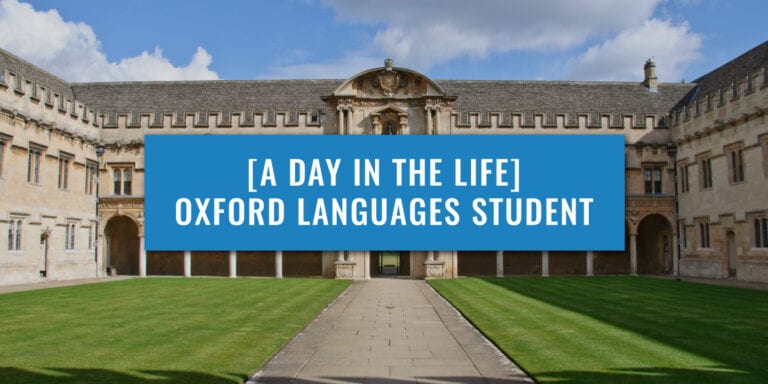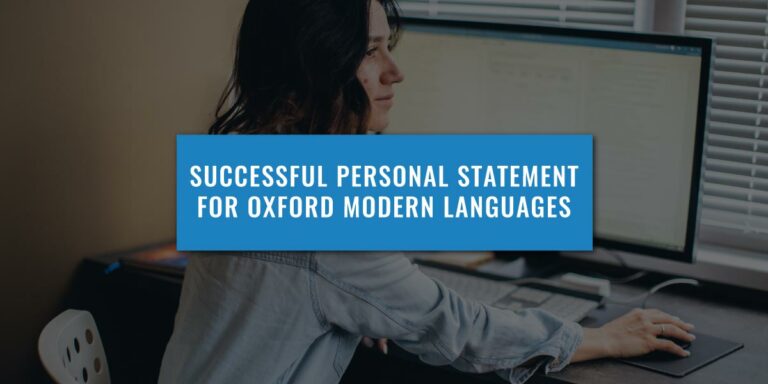This is Rhys’ experience of a St Catherines College Oxford languages interview in 2007 – if you’re applying for Languages at Oxford then this will be a great indicator to what you need to think about when it comes to your Languages interview.
I received one interview for Spanish, and one for Linguistics. There was very little (if any) cross-subject questioning in each interview.
Each interview was conducted by a pair of interviewers, in the College itself (I did not visit other Colleges for interviews). Both lasted half an hour, and took place in the afternoon in early December. If I recall correctly, there was one interview per day.
Overall, the interviews were very informal. I found the interviewers to be uniformly friendly and encouraging throughout.
Before the Spanish interview, I was presented with three items: a short poem by Jorge Luis Borges, a novel extract from ‘Sin noticias de Gurb’ by Eduardo Mendoza, and a comparative translation (I forget about what). I was told to analyse only one of these texts, and be prepared for a discussion (I picked the novel extract). I had 30 minutes to prepare.
Before the Linguistics interview, I was given a written series of jokes – and was told to explain (in grammatical terms) why they are funny. I was also given a list of verbs in Swahili, with an English gloss. I was expected to explain how the Swahili verb works. I had 30 minutes to prepare responses to both exercises.
Assessments took place at interview at this time – this has become the Oxford MLAT, which now takes place several weeks before interview season.
I sat a 30 minute Spanish test, and a 30 minutes Linguistics aptitude test. Looking at present-day MLATs, the format is virtually unchanged.
SPANISH: In the interview, I was given 5 short sentences to translate on-the-spot. This was followed by a short (about 2 minutes) oral discussion about (if I recall correctly) my secondary school. We then discussed the aforementioned novel extract – I was asked to summarise, comment on structure, and discuss the content (which was easy – it was a humorous text!). This took about half of the interview time. I was asked about Icelandic, a language for which I was applying elsewhere (and thus was mentioned on my personal statement). This surprised me, but I found it enjoyable – I felt like the interviewers were genuinely curious about my interest in Icelandic and Old Norse texts. I was then asked if there was any particular section of Spanish literature that took my interest. In reality, there was not – I was honest about this; it was all very new to me.
LINGUISTICS: We began by discussing the aforementioned exercises (jokes and Swahili). I found the jokes easy, but the Swahili was more challenging. The interviewers were very kind and, when necessary, gave me prompts to work out the Swahili verb system. This took about half the interview time. I was then asked from where my Linguistics interest stemmed (it’s not a popular subject in the scheme of things!). We discussed Welsh, and Welsh-language policy (sparked by one interviewer asking about the origin of my name). For a final question, I was asked if I wished to specialise in any particular field of Linguistics. I mentioned historical linguistics, with a particular focus on Old Norse.
Overall, I found the interviews pleasant, but certainly challenging. Seemingly simple questions can have a complex answer! Whilst rigorous, I did not find the experience to be confrontational in any way.
I didn’t receive any of the “curveball” questions for which interviews are notorious – in fact, I felt that the interviewers were encouraging me to talk about what I knew best.
This was achieved using prompts from the personal statement, and branched off into other closely-related topics. Leading questions like “What do you want to specialise in?” also achieved this end.
Overall, the format was what I expected (instructions and pre-interview materials were well-explained), meaning there were no “on-stage” surprises. I was not expecting some of the pre-interview materials (the Swahili caused me to panic for a few moments!), but no questions seemed especially out-of-the-ordinary.
My secondary school was very small, and thus had few resources for helping Oxbridge applicants. My preparation was relatively minimal – and I had several misconceptions. First of all, I overdressed (no need for pinstripes!). I was also more prepared for a confrontational meeting than I needed to be – as mentioned, the interviewers were disarmingly kind.
When preparing, I ensured that I could discuss the texts and experiences I had mentioned on the personal statement – if you’re bluffing, they will know. Were I to re-apply, I would like to include more texts – especially for Spanish. My literary range in Spanish was very small (only 2 texts, one of which was on my school syllabus) – this needs to be upped for present-day students. That doesn’t mean you need to go overboard! Better to discuss one text in depth than ten in only the shallowest fashion.
At Oxford (I believe Cambridge is different), there is a lot of waiting around. I found this pleasant – a chance to meet potential classmates (some people I met at interview became future housemates) – but I can imagine that some applicants might consider this to be some kind of purgatory.
If you consider yourself outgoing, engage the other outgoing types! Share ideas, practice with each other, relax, play some pool (I did all these things, and look back fondly on it). If you’re less of an extrovert, that’s fine too – focus on your texts, stay calm, and remember: ultimately, the interview is about you and you alone.
Honesty is the best policy. If you don’t have a speciality in (say) Spanish, that’s okay! You’re still near the start of the learning process (and, for Linguistics, completely at the start). Enthusiasm and teachability are the most prized qualities.



